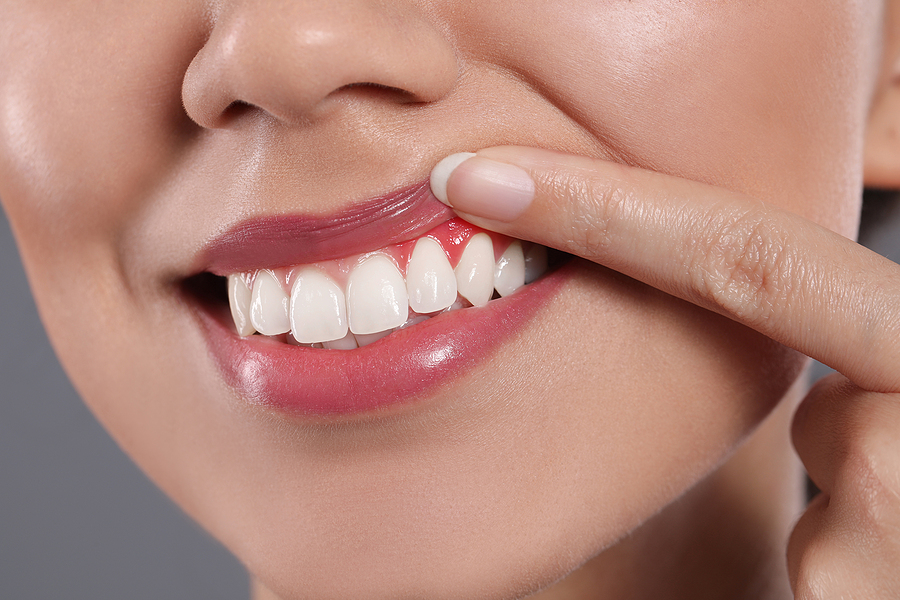
Can Gum Disease Be Genetics?
Gum disease often begins without symptoms, which is why it is important to visit your dentist for routine exams. You could have gum disease and not know it! Roughly 75 percent of adults over the age of 30 have some form of gum disease. This number increases to 91 percent for adults over the age of 65. In fact, the American Academy of Periodontology estimates that as many as 80 percent of adults over the age of 65 suffer from some form of gum disease.
The first stage of gum disease is gingivitis, which is characterized by red, swollen gums that bleed easily. During later stages of gum disease, you may experience permanent tissue and bone loss.
How is gum disease diagnosed?
The symptoms of gum disease, such as red, swollen, or bleeding gums, are easy to spot. However, gum disease is very difficult to diagnose on your own. Only your dentist can diagnose gum disease after a thorough evaluation of the gums. We will examine the gums for signs of infection or disease. Our team also serve areas including Carol Stream and Roselle.
What causes gum disease?
Gum disease is caused by a buildup of plaque on the teeth and gums. Plaque is a sticky film that develops on the teeth after you eat. Plaque is made up of living bacteria that release harmful acids and toxins that inflame the gums and break down the bone.
Can gum disease be genetic?
Your genetics do play a role in your risk for gum disease. But your oral hygiene habits play the biggest role. If your parents had gum disease, you’re more likely to get it, too. But if you take good care of your teeth and gums by brushing and flossing regularly, your risk for gum disease will go down. Even if your siblings have gum disease, even if you have the gene that puts you at risk for it, you can still prevent and treat gum disease.
Most people don’t check their gums for signs of gum disease. When gum disease is caught during its earliest stages, it can usually be reversed. However, if gum disease is ignored, it can lead to tooth loss, receding gums, infection, and other serious issues.
How is gum disease treated?
Gum disease is typically treated with deep cleaning or dental surgery. Treatment will vary depending on how much damage has occurred. For example, if your gums have receded, your dentist may recommend a soft tissue graft.
If gum disease is caught in its early stages, scaling and root planing may be sufficient to treat it. This treatment scrapes the plaque and tartar from your gums and roots. Your dentist may prescribe a medicated mouthwash to use after treatment.
Schedule an appointment with Arden Dental Center to learn more about taking care of your oral health. We are located at 531 E. Roosevelt Road, Suite 100, Wheaton, IL 60187. Contact our team at (630) 529-0303 or visit our website to book a consultation.
Office Hours
MON9:00 am - 5:00 pm
TUE9:00 am - 3:00 pm
WED9:00 am - 5:00 pm
THU10:00 am - 6:00 pm
FRI - SAT8:00 am - 1:00 pm
SUNClosed






comments